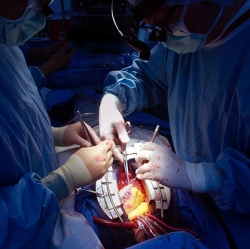
Scientists say they are a step closer to growing fully functioning replacement kidneys, after promising results in animals. When transplanted into pigs and rats, the kidneys worked well, passing urine just like natural ones. Getting the urine out has been a problem for earlier prototypes of lab grown kidneys, causing them to balloon under the pressure.
The Japanese team got round this by growing extra plumbing for the kidney to stop the backlog, PNAS reports. Although still years off human trials, the research helps guide the way towards the end goal of making organs for people, say experts. In the UK, more than 6,000 people are waiting for a kidney, but because of a shortage of donors, fewer than 3,000 transplants are carried out each year.
More than 350 people die a year, almost one a day, waiting for a transplant. Lab-grown kidneys using human stem cells could solve this problem. Dr Takashi Yokoo and colleagues at the Jikei University School of Medicine in Tokyo used a stem cell method, but instead of just growing a kidney for the host animal, they set about growing a drainage tube too, along with a bladder to collect and store the urine.
When they connected this to the animal’s existing bladder, the system worked. Urine passed from the transplanted kidney into the transplanted bladder and then into the rat bladder. And the transplant was still working well when they checked again eight weeks later. They then repeated the procedure on a much larger mammal, a pig, and achieved the same results.
Prof Chris Mason, an expert in stem cells and regenerative medicine at University College London, said: "This is an interesting step forward. The science looks strong and they have good data in animals.
"But that’s not to say this will work in humans. We are still years off that. It’s very much mechanistic. It moves us closer to understanding how the plumbing might work.
